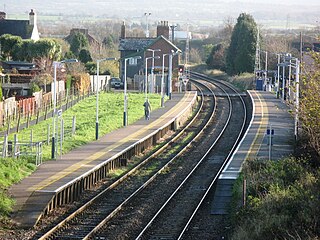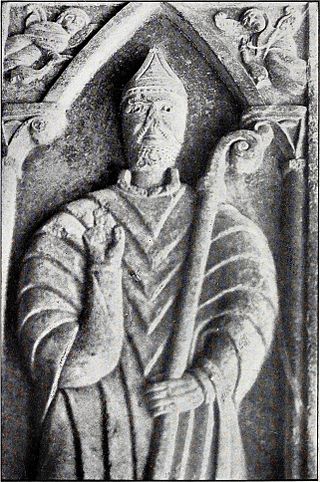Related Research Articles

John Rainolds was an English academic and churchman, of Puritan views. He is remembered for his role in the Authorized Version of the Bible, a project of which he was initiator.

Heavitree is a historic village and former civil parish situated formerly outside the walls of the City of Exeter in Devon, England, and is today an eastern district of that city. It was formerly the first significant village outside the city on the road to London. It was the birthplace of the librarian Thomas Bodley, and the theologian Richard Hooker, and from the 16th century to 1818 was a site for executions within what is now the car park of the St Luke's Campus of the University of Exeter.

Exeter is a constituency composed of the cathedral city and county town of Devon represented in the House of Commons of the UK Parliament since 2024 by Steve Race of the Labour Party. The constituency has had a history of representatives from 1900 of Conservative, Liberal Party, Independent and Labour representation.

Pinhoe railway station is on the eastern edge of the city of Exeter in Devon, England, that serves the village of Pinhoe. It was opened by the London and South Western Railway (LSWR) in 1871 but is now operated by South Western Railway which provides services on the West of England Main Line. It is 168 miles 44 chains (271.3 km) down the line from London Waterloo.

Great Milton is a village and civil parish in Oxfordshire, about 7 miles (11 km) east of Oxford. The 2011 Census recorded the parish's population as 1,042.
Devon was a parliamentary constituency covering the county of Devon in England. It was represented by two Knights of the Shire, in the House of Commons of England until 1707, then of the House of Commons of Great Britain from 1707 to 1800 and finally the House of Commons of the United Kingdom from 1801 to 1832. Elections were held using the bloc vote system of elections.

Pinhoe is a former village, manor and ecclesiastical parish, now a suburb on the north eastern outskirts of the City of Exeter in the English county of Devon. The 2001 census recorded a population of 6,108 people resident within Pinhoe Ward, one of 18 wards comprising the City of Exeter. The population increased to 6,454 at the 2011 Census.

Bartholomew of Exeter was a medieval Bishop of Exeter. He came from Normandy and after being a clerk of the Archbishop of Canterbury, was made Archdeacon of Exeter in 1155. He became Bishop of Exeter in 1161. Known for his knowledge of canon law, he was involved in the Becket controversy after the appointment of Thomas Becket as Archbishop of Canterbury. After Becket's death, although he was frequently at the royal court, he mainly attended to his diocese. A number of works by him survive, including sermons and treatises on law and theology.
The Battle of Pinhoe took place between the Danes and the men of Devon and Somerset at Pinhoe, Devon.
William Holmes D.D. was an English academic, Vice-Chancellor and Regius Professor of Modern History of the University of Oxford. He was also Dean of Exeter between 1742 and 1748.

John Conybeare was Bishop of Bristol and one of the most notable theologians of the 18th century.
Thomas Reynolds was an English bishop and academic. He was the Warden of Merton College, Oxford, from 1545 and was created Bishop of Hereford by Mary I.
Whittington Landon was an academic at the University of Oxford and an Anglican clergyman who became Dean of Exeter.
Ralph Barnes was an English Anglican priest who was the Archdeacon of Totnes from 1775 until 1820.
James Leakey (1775–1865) was an English landscape and portrait artist.
Samuel Walker (1714–1761), called Samuel Walker of Truro, was an English evangelical clergyman of the Church of England.
Sir John Skynner, PC was an English judge and politician who sat in the House of Commons from 1771 to 1777.
References
- ↑ Some Account of the Barony and Town of Okehampton; Bridges, W. B.; Thomas, C.; Fothergill, H. G.; new ed. by Wright, W. H. K.; Tiverton: W. Masland, 1889
- ↑ Foster, Joseph (1888–1892). . Alumni Oxonienses: the Members of the University of Oxford, 1715–1886 . Oxford: Parker and Co – via Wikisource.
- ↑ Thomas Skynner, DD
- ↑ Civil and Ecclesiastical History of the City of Exeter and Its Environs; by A. Jenkins; p. 300: Exeter: W. Norton, 1841
